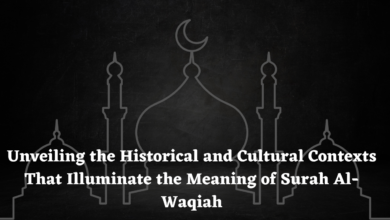What are the Islamic marriage laws regarding the requirements?
An Insight into Islam's Sacred Union: Marriage Laws and Their Values

Introduction
Marriage is a sacred institution in Islam, encompassing deep spiritual significance and societal importance. Islamic marriage laws are founded on the principles and teachings of the Quran and Hadiths (sayings and actions of Prophet Muhammad). These laws provide a framework for a harmonious and fulfilling marital life while upholding the rights and responsibilities of both partners. This article delves into the key aspects of Islamic marriage laws, highlighting the requirements, procedures, and rights granted to individuals within this framework.
The Sanctity of Marriage in Islam
In Islam, marriage is regarded as a highly virtuous act, considered one of the primary means to establish a family and maintain the moral fabric of society. The Quran explicitly states, “And among His signs is that He created for you from yourselves mates that you may find tranquility in them, and He placed between you affection and mercy” (Quran 30:21). Marriage is believed to bring emotional support, love, and companionship to the couple, providing them with a safe space to nurture their spirituality and achieve personal growth.
Requirements for Marriage
In Islamic marriage laws, certain prerequisites must be met for a marriage to be valid:
- Mutual Consent: The most fundamental requirement is the consent of both parties involved. Islam prohibits forced marriages, emphasizing the importance of free will in choosing a spouse. Both the bride and groom must willingly agree to the marriage.
- Legal Age: In most Islamic jurisdictions, the legal age for marriage is typically the age of puberty. However, local laws may vary, and some countries have set a higher age for marriage to protect young individuals from entering into a union prematurely.
- Witnesses: Islamic law requires the presence of witnesses during the marriage contract’s solemnization. These witnesses are usually responsible for documenting the marriage and validating its legitimacy.
The Marriage Contract (Nikah)
The Islamic marriage contract, known as Nikah, is the formal agreement that binds the couple in matrimony. The contract includes specific terms and conditions, outlining the rights and responsibilities of both the husband and wife. It is signed by the bride, groom, and their respective guardians, and witnessed by two Muslim adults.
The Mahr (Dowry)
One of the essential elements of the Nikah is the Mahr, a mandatory gift that the groom must offer to the bride as a symbol of love and respect. The Mahr is solely the property of the bride and is meant to provide financial security and independence. It can be paid immediately after the contract or deferred to a later date, as agreed upon by the couple.
Rights and Responsibilities of Spouses
Islamic marriage laws place a strong emphasis on the rights and responsibilities of both partners within the marriage. These include:
- The husband’s responsibilities: a. Financial Support: The husband is obligated to provide for his wife’s financial needs, including food, clothing, and shelter, based on his capacity. b. Maintenance: He must treat his wife with kindness and respect, maintaining a harmonious and loving relationship. c. Protector: The husband is the guardian of the family, responsible for ensuring the safety and well-being of his wife and children.
- The wife’s rights: a. Mahr: The wife has the right to receive the agreed-upon Mahr from her husband, which remains her exclusive property. b. Obedience to Islamic principles: Both partners are expected to adhere to Islamic principles and moral guidelines to create a righteous and God-fearing family.
Marriage and Equality
While Islamic marriage laws emphasize the complementary roles of husband and wife, they also emphasize equality in the sight of God. Islamic teachings promote mutual respect, understanding, and cooperation between spouses. Prophet Muhammad (peace be upon him) emphasized this equality, stating, “The best among you are those who are best to their wives.”
Divorce in Islam
Divorce is permissible in Islam but considered a last resort after exhausting all possible avenues for reconciliation. The procedure for divorce, known as Talaq, varies across Islamic traditions and jurisdictions. It involves a waiting period (Iddah mj to ensure there are no pregnancies, allowing for a possibility of reconciliation.
Conclusion
Islamic marriage laws are rooted in principles of compassion, mutual respect, and the preservation of human dignity. They provide a framework for a strong and loving union between spouses, promoting the well-being of the family and the wider community. Understanding these laws is essential for those seeking to embrace the beauty and wisdom of Islamic teachings regarding marriage, ensuring a fulfilling and harmonious marital life.
What is the significance of marriage in Islam?
Marriage holds immense spiritual importance in Islam, as it is seen as a virtuous act that fosters love, tranquility, and companionship between spouses. It is a means to establish a family and maintain the moral fabric of society.
What are the requirements for a valid Islamic marriage?
For an Islamic marriage to be valid, mutual consent of both the bride and groom is essential. The couple must have reached the legal age of marriage, and the presence of witnesses during the marriage contract’s solemnization is necessary.
What is the Islamic marriage contract (Nikah)?
The Nikah is a formal agreement that binds the couple in matrimony. It includes terms and conditions outlining the rights and responsibilities of both spouses, and it is signed by the bride, groom, and their respective guardians, witnessed by two Muslim adults.
What is the Mahr (dowry) in Islamic marriages?
The Mahr is a mandatory gift that the groom must offer to the bride as a symbol of love and respect. It is solely the bride’s property and serves to provide her with financial security and independence.
What are the rights and responsibilities of spouses in an Islamic marriage?
The husband is responsible for financially supporting his wife and maintaining a harmonious relationship. The wife has the right to receive the agreed-upon Mahr and is entitled to be treated with kindness and respect.
Does Islam allow forced marriages?
No, Islam strictly prohibits forced marriages. It emphasizes the importance of free will and mutual consent in choosing a spouse.
Can a Muslim woman marry a non-Muslim man?
In Islamic law, a Muslim woman is not allowed to marry a non-Muslim man, while a Muslim man may marry a Jewish or Christian woman, with conditions for mutual respect and raising children as Muslims.
What is the process of divorce in Islam?
Divorce (Talaq) is permitted in Islam but considered a last resort after exhausting all avenues of reconciliation. The process varies across Islamic traditions and jurisdictions and involves a waiting period (Iddah) to ensure there are no pregnancies, allowing the possibility of reconciliation.
Are there any restrictions on the number of wives a Muslim man can have?
Islamic law allows a Muslim man to have up to four wives, with the condition that he treats each wife equally in all aspects.
How does Islam promote equality between spouses?
While Islamic marriage laws emphasize complementary roles for husbands and wives, they also stress equality in the sight of God. Both partners are encouraged to treat each other with respect, understanding, and kindness, promoting a harmonious and loving marital relationship.





